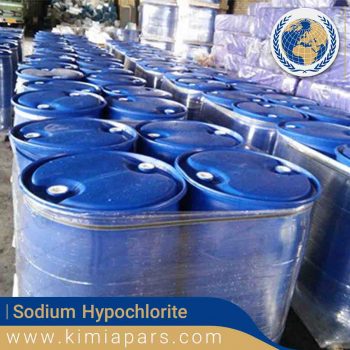Sodium Hypochlorite (active 15)
- Description
- Analysis of Sodium Hypochlorite
Description
Sodium Hypochlorite
Chemical Formula of Sodium Hypochlorite: NaClO
Other names: Javel Water – Antiformin – Bleach – Chloride of soda – Liquid bleach
Other names in dilution: Carrel-Dakin solution | Modified Dakin’s solution | Surgical chlorinated soda solution
Raw Materials: Chlorine, Sodium Hydroxide (Caustic)
Appearance: Greenish- yellow solution
Usages:
- Bleaching agent
- Petroleum products refining
- Sand , Wax
- Sanitize food preparation (Sugar , Mushroom, hog, flour, beef, vegetable processing , maple syrup production, fish processing fruit )
- Drink water and wastewater purification and sanitary equipment
- In therapeutic rinses, mouthwashes, toothpastes and gels, mouth sprays , as preservative in eye drops
- Packaging : 250 kgs barrel, Bulk in Iso/PE tank
Price: Negotiable, depending on the amount of the order
Min order: 1*20 ft. FCL
Delivery time: Within 5-10 days after we receive the payment
Origin: Iran
Sodium Hypochlorite: The Multi-Purpose Chemical Compound
Sodium hypochlorite is a highly reactive chemical compound that has a broad range of applications in various industries. It is a versatile and effective oxidizing agent that is commonly known as bleach. Due to its ability to eliminate bacteria, viruses, fungi, and other microorganisms, it is widely used as a cleaning and sanitizing agent in the food and beverage, healthcare, water treatment, and swimming pool industries, among others.
In this article, we will discuss the chemicals properties of sodium hypochlorite, its uses in different industries, the importance of proper handling and storage, and the challenges associated with its usage.
Chemical Properties of Sodium Hypochlorite
Sodium hypochlorite is a clear, yellowish liquid with a distinctive odor. It is a highly soluble salt that forms when chlorine gas is dissolved in a sodium hydroxide solution. The chemical formula for sodium hypochlorite is NaClO, where Na represents sodium, Cl represents chlorine, and O represents oxygen.
Sodium hypochlorite is a strong oxidizing agent and can release oxygen when it reacts with organic compounds. This reaction, known as oxidation-reduction, is responsible for the bleaching action of sodium hypochlorite. The concentration of sodium hypochlorite in a solution is usually expressed as the percentage of available chlorine, which ranges from 5% to 15%. The higher the concentration, the stronger the oxidizing and sanitizing properties of the solution.
Uses of Sodium Hypochlorite in Different Industries
-
Food and Beverage Industry
In the food and beverage industry, sodium hypochlorite is commonly used for sanitizing equipment, surfaces, and water. Its high oxidizing power makes it an effective agent for removing dirt, grime, and microorganisms from food processing equipment and surfaces. Additionally, it is used to sanitize water used in food and beverage production to ensure that the water is free from harmful microorganisms that could potentially contaminate the final product.
-
Healthcare Industry
Sodium hypochlorite is widely used in the healthcare industry for disinfecting surfaces, equipment, and medical instruments. Hospitals, nursing homes, and other healthcare facilities use sodium hypochlorite to kill bacteria, viruses, and other pathogens that could cause infections and spread disease. Additionally, it is used to clean and sanitize wound dressings, surgical instruments, and other medical devices that come into direct contact with patients.
-
Water Treatment Industry
The water treatment industry also makes use of sodium hypochlorite for disinfecting drinking water and wastewater. Its high oxidizing power makes it an effective agent for killing harmful microorganisms in water, including bacteria, viruses, and fungi. Additionally, it is used to remove iron, manganese, and hydrogen sulfide from water, making it safer and more palatable for human consumption.
-
Swimming Pool Industry
Sodium hypochlorite is widely used in the swimming pool industry as a disinfectant and sanitizer. It is added to the water to kill harmful microorganisms and ensure that the water is safe and healthy for swimming. The concentration of sodium hypochlorite in swimming pools is typically between 1 and 3 parts per million (ppm).
Sodium Hypochlorite Analysis |
| Content | Test Result |
|---|---|
| av.Chlorine | Min 12 %w/v |
| Alkalinity(as NaOH) | Max 1.5 %w/v |
| Na2CO3 | Max 1.0 %w/v |
| NaClO3 | Max 0.7 %w/v |
| Density | Min 1.16 gr/cc |
| Suspended solid | Max 0.1 %w/w |
| Fe | Max 3 ppm |
| Co | Max 0.5 ppm |
| Cu | Max 0.5 ppm |
| Ni | Max 0.5 ppm |
| Hg | Max 0.1 ppm |

